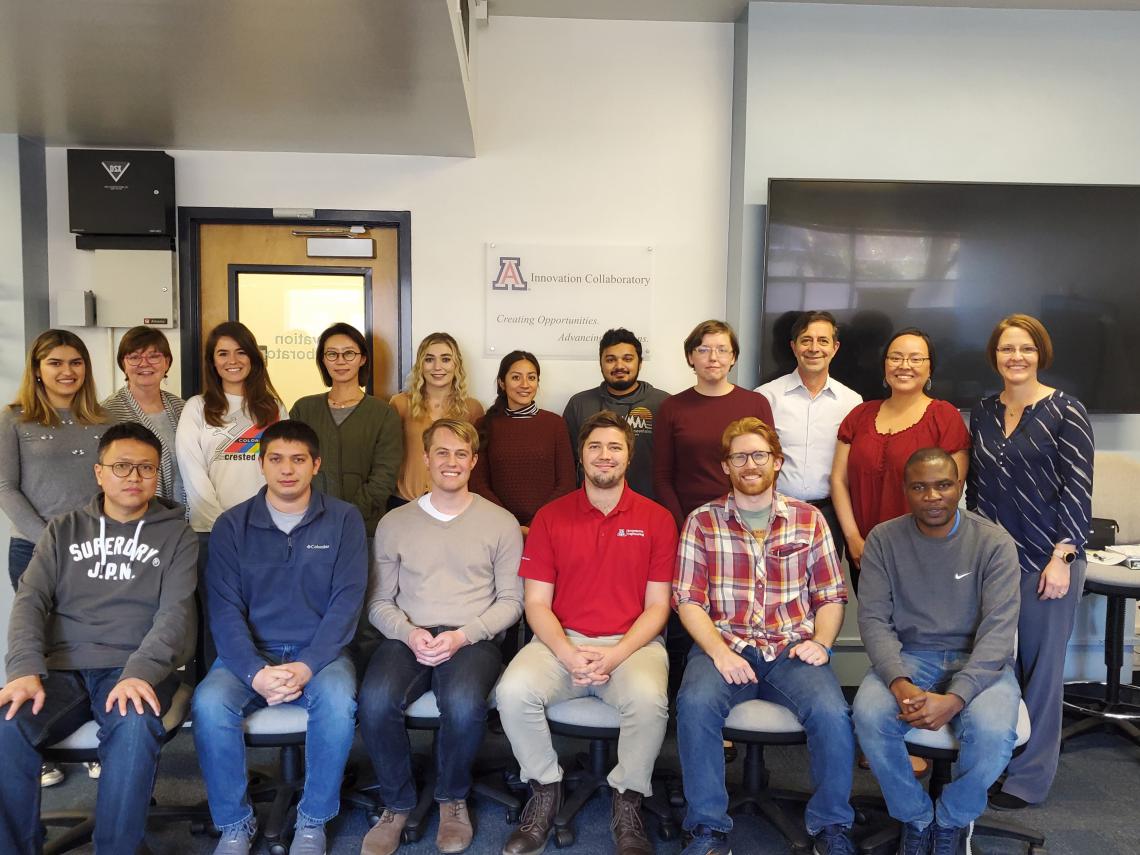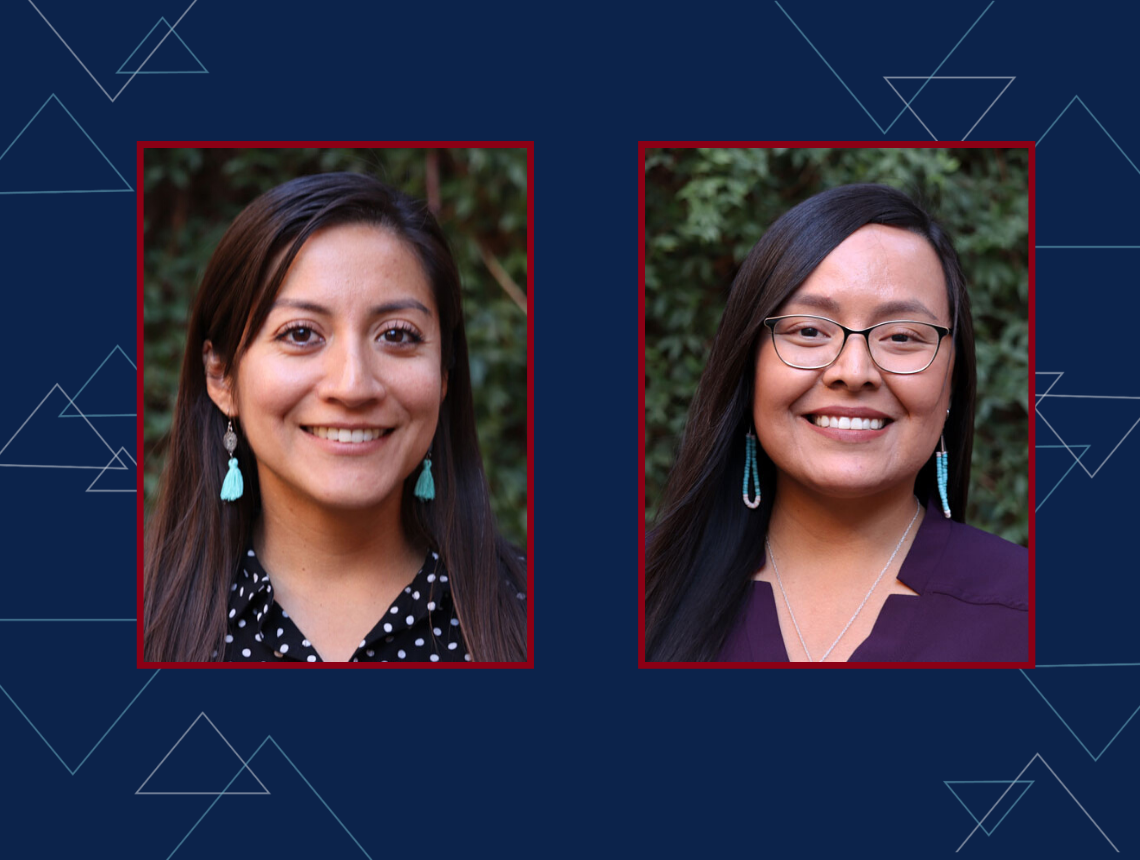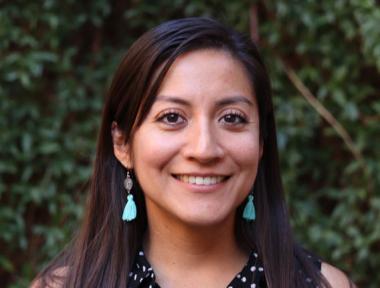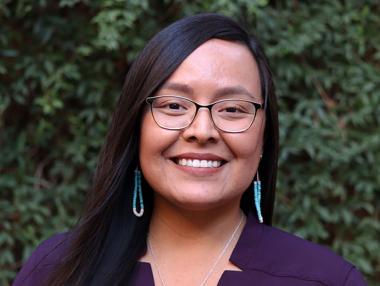Two Graduate Students Selected as 2020 Impact Leaders
Master’s student Alma Anides Morales and doctoral candidate Richelle Lynn Thomas are selected for a new and prestigious professional development program in the College of Agriculture, Life and Environmental Sciences.
Along with fourteen other College of Agriculture, Life and Environmental Sciences graduate students, Morales and Thomas are part of a program created in partnership with Bayer Crop Sciences, Porterbay Insight and the College of Agriculture, Life and Environmental Sciences Career Center aimed at preparing diverse and interdisciplinary future leaders.
I am most excited to learn how to effectively communicate. Reading my personality and behavior assessment from the first training heightened my self-awareness—how I prefer to communicate and my expectations of others." - Alma Anides Morales
The 2020 Impact Leader program matches each student with an industry sponsor for monthly mentoring sessions during the spring 2020 semester. This mentorship will give students insights into industry perspectives and networking. The graduate students also meet each month for a focused and interactive training including team-building and conflict resolution; communication and branding; and avoiding setbacks in your career.
I am expecting to build on my team-building skills. It is my every intention to be a competent, effective, consistent, and productive leader for my Diné people. - Richelle Lynn Thomas
2020 Fellows session 1.jpg

Read more about Morales and Lynn in their profiles below.
Alma Anides Morales
Master's of Environmental Science, Graduate Certificate in Geographic Information Systems
Anticipated Graduation: May 2020
I grew up in Guadalajara, Mexico until the age of nine. My family and I then moved to the U.S. where we lived in several states including New Jersey, North Carolina, and California. I completed my bachelor's in International Relations at the University of Southern California. After graduation, it took a few jobs and several life experiences for me to realize that I wanted to be involved in solutions regarding environmental pollution. I came to graduate school seeking the skills that would allow me to transition into this new career.
I aspire to work in efforts that reduce environmental pollution exposure in underserved communities and assist in remediation actions.
Research Project
My research project studies soil microbial contamination due to untreated wastewater pollution and the potential health risks associated with it. This is a community-based research in a rural town along the U.S.-Mexico border. The end product will be a risk assessment specific to the community being affected. My research methods include environmental monitoring, surveys to the community, and a literature review. All results will be shared with the local county public health agency and local school so that proper preventative measures can be taken during sewage overflow events.
Richelle Lynn Thomas
Doctor of Environmental Science
Anticipated Graduation: December 2021
I am from the Navajo Nation and my tribe is called Diné. I am from a small community called Coalmine Mesa, Arizona but grew up in Tuba City, Arizona. I completed my B.S. and M.S. at Northern Arizona University in Flagstaff, Arizona. I enrolled in graduate school to assist my Diné communities with environmental contamination of heavy metals and to advocate for STEM in our high school and local community college on the Navajo Nation.
I aspire to become a medical physician and integrate my environmental science education into the healthcare that I provide for the Diné people.
Research project
My doctoral project objectives are to quantify and examine uranium/heavy metal interactions in medicinal plants utilized by Native American tribes with a focus on the Diné/Navajo people. The project focuses on the public health and safety aspect to the Diné people, while integrating biological and analytical techniques, traditional ecological knowledge, and policy. I hope that the project will bring about a positive change in the Navajo Nation regarding heavy metal regulation and ensure the safety of not only the people but the medicinal plants that are utilized.




